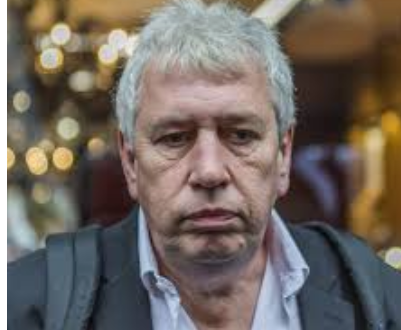In today’s Telegraph Andrew Gilligan focuses his attentions on Tell MAMA. Gilligan has, in the past, certainly brought some very interesting stories to light – about Ken Livingstone and Lutfur Rahman, for example. But this latest piece is somewhat underwhelming.
The main argument is a familiar one – that the scale and nature of anti-Muslim incidents has been exaggerated. I accept there is something in this, but it’s not unique to this issue. With any kind of cause people feel strongly about – climate change, violence against women, homophobia – there is going to be a tendency for activists to use impassioned language to encourage people to listen to their concerns, and journalists will also be tempted to ratchet up the rhetoric in order to boost sales.
But Andrew Gilligan seems to have been doing a little sexing up of his own, quoting Fiyaz Mughal rather selectively, downplaying his cautions against overstatement.
Mr Mughal is in no doubt what lies behind it all. As he told a newspaper: “I do not see an end to this cycle of violence. There is an underlying Islamophobia in our society and the horrendous events in Woolwich have brought this to the fore.”
And as he put it on Today, “the [Government’s] Prevent [anti-extremism] agenda, the extremist agenda, have not been good for building confidence – the sense of fear just alienates and isolates communities.”
This selectivity is touched on in this response to Gilligan’s piece, which is largely concerned with explicating Tell MAMA’s reporting processes.
Finally, we made clear to Gilligan that the United Kingdom was still the safest place to live in and that it was one of the best countries for faith communities to be in. We re-iterated this twice, yet he chose to make no mention of this. We also mentioned the fact that thankfully, there is something inherent within the British public which detests violence and this may be why we had not seen an orgy of violence after the murder in Woolwich. We have also gone on various news sources and stated that insults, abuse and attacks against Muslims and mosques simply play into the narrative of the two murderers of drummer Lee Rigby who wanted to start ‘a war.’ Once again, these comments are strangely missing from the article.
The response also notes that Gilligan did not mention Tell MAMA’s investigation of a violent attack on a Shia man (an incident involving Anjem Choudhary and his crew.)
Gilligan brushes aside concerns about anti-Muslim hate speech. But words are very powerful, and can incite hatred, even violence. Even comparatively low level, subtle, anti-Muslim discourse can have serious consequences. I have seen many examples of EDL sympathisers cite stories (frequently mistaken or exaggerated) they have read in the tabloids as inspiration. He cites a comment from Baroness Flather as something which didn’t merit being classified as an ‘anti-Muslim incident’.
Asian peer, Baroness Flather, told a newspaper it was “pointless for the Conservatives to chase Muslim votes. They are all on benefits and all vote Labour”.
But ‘incidents’ don’t have to be violent, and the Baroness’s remark is the mirror image of Ken Livingstone’s claim that Jews wouldn’t vote for him because they are rich. (Although in fact Gilligan notes that the Flather remark has now been declassified as an ‘incident’ following an explanation.)
Gilligan refers disparagingly to the ‘Islamophobia industry’, and suggests that anti-Muslim crimes are steadily going down – yet also concedes they will probably be up this year following the Woolwich incident. As with antisemitic incidents there are peaks and troughs of activity. It is indeed positive that there are more Muslim MPs now, and also that BNP support is in sharp decline. But bigotry is complex – there are several Jewish MPs, including the leader of the Labour Party of course, but that doesn’t mean antisemitism is not a problem in the UK. Both antisemitism and anti-muslim bigotry are more pressing concerns in other European countries (and Gilligan makes this point about anti-muslim legislation in France and Switzerland) but that’s no reason to be complacent.
Gilligan claims:
But part of [Tell MAMA’s] motivation appears to be an attempt to draw some of the sting from Islamist terrorism by equating it with the work of anti-Muslim extremist groups such as the English Defence League.
As Tell Mama’s Twitter feed puts it, “whilst we need to tackle the narrative of hate inspired by al-Qaeda, we also need to tackle the thuggery and hate of the EDL”.
This is quite a loaded way of describing its motivation. It’s hardly surprising that an organisation set up to monitor anti-muslim bigotry should be particularly concerned by the EDL, and it seems unfair of Gilligan to conclude:
And in overhyping the backlash, some in the Muslim community are playing right into the hands of his killers.
It could be argued that exposing the extreme views of Muslim groups, violent or non-violent, plays into the hands of the EDL. Is this a reason to ignore them? And in fact airing the problems – whether it’s with religious extremists or anti-muslim bigotry – stops disaffected people (from both camps) feeling their concerns are being ignored.


